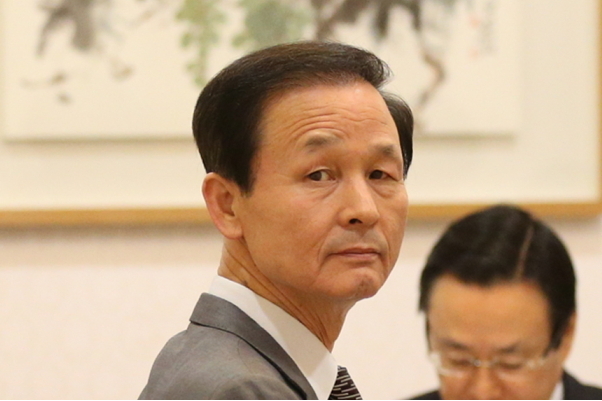NSC faces fast-evolving security landscape in N. Korea, region
By Shin Hyon-heePublished : Dec. 22, 2013 - 20:17

The planned reorganization of the National Security Council reflects Seoul’s efforts to better tackle daunting diplomatic challenges and react quickly to the fast-evolving security dynamics involving North Korea and the region.
President Park Geun-hye approved plans to install the NSC’s standing committee and secretariat on Friday. Headed by national security office chief Kim Jang-soo, the panel is to gather once a week to fine-tune foreign and security policies and make policy recommendations to Park.
The decision came amid growing calls for a more systematic and effective security control mechanism.
The recent execution of the North Korean leader’s powerful uncle Jang Song-thaek has intensified anxiety over the instability and uncertainty of the Kim Jong-un regime, prompting Park to urge “full readiness” against potential cross-border provocations.
Two major U.S. think tanks, the Washington-based Council on Foreign Relations and the Seattle-based National Bureau of Asian Research, picked the crisis in North Korea as one of the most urgent threats to regional stability in their respective annual surveys released last week.
Adding to the concerns are China’s unilateral declaration of an air defense zone and Japan’s accelerating push for greater military clout under what it calls “active pacifism.” The two neighbors are also working to set up a national security institution as their top decision-making body.
“The danger in the security situation of the Korean Peninsula has increased lately, with North Korea threatening a strike without warning,” Ju Chul-ki, senior presidential secretary for foreign and security affairs, told reporters.
“Together with this, a momentous change is taking place in the strategic environment of East Asia, including deepening conflicts among neighboring states surrounding the peninsula,” he said, adding that the NSC is designed to “proactively and effectively deal with such circumstantial shifts.”
Despite a recent plunge, Park’s popularity has been staunchly propped up by her handling of foreign and security policies since her inauguration in February.
Yet South Korea seems to be floundering through a sea of increasingly intricate and multifaceted challenges on the peninsula and in the region, bent on resolving pressing issues at hand.
While trumpeting trust and principle as the centerpieces of the president’s statecraft and shying away from giving honest advice, Seoul officials were caught by surprise when the U.S. openly displayed its backing for Japan’s rearmament despite South Korea’s unease stemming from historical wounds.
Constant discord is becoming increasingly apparent in government circles, with the foreign, defense and unification ministries and the National Intelligence Service often making conflicting statements, as was the case during the furor over Jang’s execution.
During the Roh Moo-hyun administration, the NSC functioned as a potent control tower for foreign and security affairs but took flak for stretching its authority.
This time, some officials at the core of the decision-making process have been criticized for their lack of long-term insight, shrewd judgment and practical policy solutions, which are vital for striking a balance between political, economic and strategic interests.
Such criticism has in recent months fueled rumors about the replacement of Kim Jang-soo and Ju Chul-ki. Observers say Kim has gone from an upright former defense minister to a paper tiger eclipsed by NIS director Nam Jae-joon, while Ju was deemed an unlikely choice in the first place given his career devoted to multilateral diplomacy. Foreign Minister Yun Byung-se, who had helped sketch out Park’s foreign policy roadmap on the campaign trail, took the podium in Ju’s place to brief reporters at Cheong Wa Dae on delicate diplomatic issues many times.
“The focal point of foreign policy should not be to eliminate imminent external problems, but to preclude future ones,” a political scientist familiar with the matter said, asking to remain anonymous due to the sensitivity of the issue.
“New officials who will fill the NSC need to be capable of helping untangle the web of knotty issues if Cheong Wa Dae truly wants to find some way to jumpstart Park’s ‘trustpolitik.’”
By Shin Hyon-hee (heeshin@heraldcorp.com)








![[AtoZ Korean Mind] Does your job define who you are? Should it?](http://res.heraldm.com/phpwas/restmb_idxmake.php?idx=644&simg=/content/image/2024/05/06/20240506050099_0.jpg&u=)









